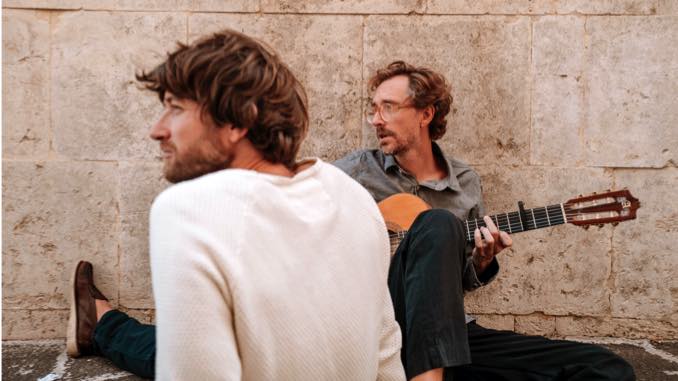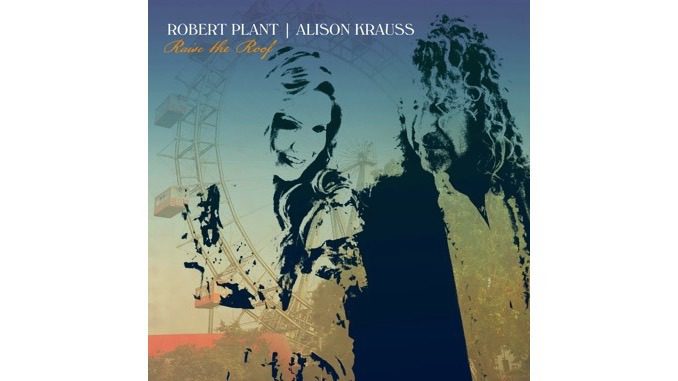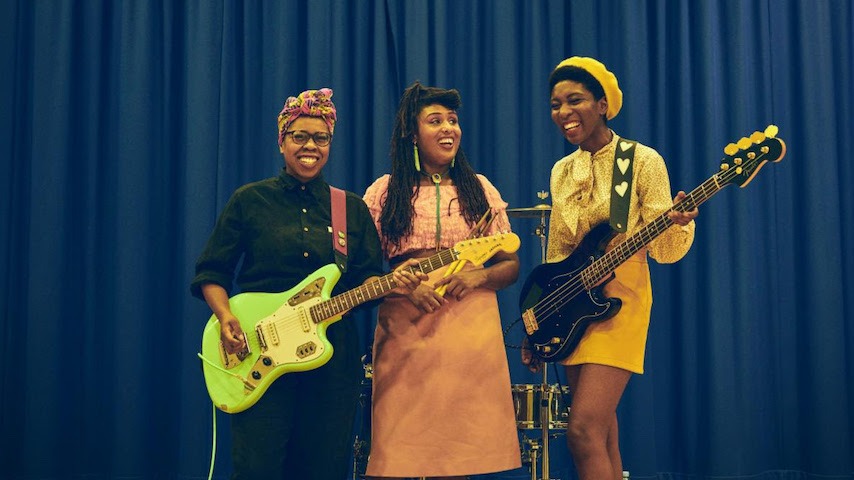What does it mean for a song to be finished? What does it mean for a musician to decide to stop their endless tinkering and send a track to their label to be pressed to vinyl and posted to streaming platforms?
In a sense, these decisions turn music into a permanent product, and unless you’re Kanye West trying to “fix ‘Wolves’” after releasing The Life of Pablo, whichever version of a song you end up deciding is the best take is the one you’re going to live with for the rest of your life. Though songs can continue to change and evolve well after being released—anyone who saw Frightened Rabbit over the years can testify to this, as “My Backwards Walk” sounded completely different each time the band went on tour—they represent a snapshot of what the artist was thinking at that given time, for better or for worse.
So can you blame Kings of Convenience for taking 12 years between albums?
Returning today (June 18) with their first album since 2009’s Declaration of Dependence, Norwegian singer/songwriter duo Erlend Øye and Eirik Glambek Bøe’s fourth record Peace or Love sounds deceptively simple. Like their other releases, the album is built on two acoustic guitars and vocal harmonies, with some string flourishes thrown in from time to time. But despite releasing loads of songs through other bands—over the past 12 years, Øye has released two solo albums and a handful of singles under his own name or as The Whitest Boy Alive, while Bøe put out a record with his band Kommode in 2017—the 11 songs on Peace or Love have been coming together for a long time, with lead single “Rocky Trail” dating back to 2012.
“Rocky Trail,” centered on an upbeat string arrangement that recalls perhaps the band’s biggest hit “I’d Rather Dance With You,” feels effortless—like so much of the band’s back catalog—but it took loads of work to get to the finish line. The band kept adding more and more instruments over time, a viola here and a vibraphone there. While Øye maintains that the final version isn’t all that different from how it started, the song shows us the band’s eye for detail and how a specific take can make or break a song years in the making.
“I think the main difference is that Eirik was short of breath on the rapping part of the song,” Øye tells Paste from his home in Syracuse, Sicily, mimicking Bøe gasping for air. “The thing is, if it was another kind of music, you could fix that. It’s just very difficult to fix that with our music. You will hear any kind of that. We have to play and sing it better. There is no other recipe for it.”
Over the two-year period of recording these songs between 2015 and 2017, the duo began to feel burnt out by the recording process, and decided to take a yearlong break. But something happened they didn’t expect upon reconvening once again: Leslie Feist called them up, saying, “Hey guys, I’m in Europe, can we do something?”
Øye, Bøe and Feist go way back: Feist had contributed vocals to two songs on the band’s much-beloved 2004 record Riot on an Empty Street, while Bøe added his own voice to “How My Heart Behaves” on Feist’s 2007 classic The Reminder. This time around, she may have saved Peace and Love entirely.
It all started with “Love Is a Lonely Thing,” a track Øye began working on as a solo song with his Italian band La Comitiva. “Well, it didn’t really happen, and then when I did it with Eirik and Feist, it was so clear that, wow, this song was so much better in this format with other vocalists,” Øye says.
The band first tried it out in 2018 at Justin Vernon and The National’s Aaron and Bryce Dessner’s collaborative PEOPLE Festival in Berlin, with the three singing in unison for the song’s three heart-wrenching verses. When the trio hit a recording studio in Berlin a year later in September 2019, something special happened.
“One of us came up with the idea: ‘Well, what if we try singing one verse each?’ And we thought, ‘OK, worth a try, let’s try that.’ And that’s what you hear,” Øye explains. “We all knew the lyrics really well, but for the first time, we sang by ourselves and chose exactly how we wanted to express the melody and the words. So it was kind of a way of tricking ourselves into giving ourselves a fresh take, which I think is the main problem when you’re trying to record music and you’re not happy. The more you try, the less fresh it becomes. You have to fool yourself into thinking, ‘We’re just fooling around!’”
That session, which also bore “Catholic Country,” tipped the scale, according to Øye, who called it “magic.” And he’s not kidding: “Love Is a Lonely Thing” is easily Peace or Love’s prettiest song, perhaps the most gorgeous thing any of them have written to date.
But elsewhere, all the extra time and work they put in didn’t necessarily yield the best results. The contemplative “Killers,” originally recorded in August 2016 at Øye’s home in Sicily, was “a pretty good take,” Øye says. “But we felt maybe we could do better. So we recorded it several times, and in the end, we came back to that first take. There’s something about the emotional quality of Eirik’s voice that didn’t appear again. So although some things may have improved, the emotional quality was a little less.”
Ditto for the bossa nova-influenced “Angel.” Øye and Bøe originally recorded the track in February 2016 in Chile, and it went through four versions in the years following—only for the duo to return to the demo version in the end.
Despite all of these songs floating around for at least half a decade, they still feel fresh and new to Øye and Bøe all these years later. Through the burnout, the long studio sessions and the endless tinkering, they’re just as excited about these 11 songs now as they were when they wrote them.
“To me, any good song will have longevity,” Bøe says from his home in Bergen, Norway. “Usually, the way a new song occurs in my mind, it’s a glimpse of an idea and then I record it on my phone or whatever recorder I have, I write down a few words and then I forget about it. I have so many other ideas. Time passes and then somehow, subconsciously, some of these forgotten song ideas reoccur in my consciousness—that’s when I know it’s a good idea that I need to keep working on and finish as a song. And then when the song is finished, which can take a long time, my joy of playing that song doesn’t decrease. I love the song so much that I could play it again 10 years later, 20 years later, and I’m still proud and I love that song still.”
Bøe’s songwriting is every bit as meditative as the music itself. Though the band describe Peace or Love as an autobiographical record, Bøe takes years to reflect on certain events and moments in his life before ever putting pen to paper.
“I’ve never written a song in the moment when the thing is happening, when the feeling is happening. It may be years of processing the emotions and memories and the ideas I had about what happened in order for me to write a song about some moment in my own life. In that sense, it’s never been a fresh snapshot of today. I’ve never written a song about what happened this morning. There’s always been one year, two years, sometimes 10 years, sometimes 15 years’ lag of when the episode happened and when I was able to write a song about it,” Bøe explains. “So in that sense, to me, time is not so much of an issue. If it’s true, if what I experienced is true and if the words I used to describe what happened feel true to me, then time is really not an issue, then it’s somehow timeless to me.”
But even though he thinks deeply about his past when writing lyrics, the music comes to Bøe via divine intervention. Sure, they’re his songs that he’s written, but he doesn’t necessarily take ownership over them, instead attributing his gorgeous melodies and harmonies to pure luck.
“I feel whenever a song is really good, I don’t feel like I owned it in the first place. I feel like I discovered something that had quality, and I was fortunate enough to discover it. But I never feel like it’s my own making; I don’t feel like my songs are my creation,” Bøe says. “But the really great songs, they feel like they came from somewhere else, like I was lucky enough to discover them. It’s not my song, I’m just the lucky guy that stumbled upon this great melody.”
Time passes slowly when the millennial version of Simon & Garfunkel are writing songs together. Individually, they’re plenty capable of creative explosions—Øye was meant to play a Mexican festival with The Whitest Boy Alive last March and ended up recording an album with his bandmate Sebastian Maschat while holed up in quarantine after the show was canceled due to COVID-19. But the return of Kings of Convenience every bit reflects the slow, measured stroll that their brand of folk music evokes.
The duo is forever unhurried, using the past five years to perfect every vocal harmony, string flourish and acoustic guitar melody that we’re lucky enough to finally hear today, mining their now-distant pasts for lyrical content. And despite them singing “It’s true I’m more wise now than I was when I was 21 / It’s true I have less time now than I had when I was 21” on album closer “Washing Machine,” their growing experiential intellect doesn’t mean they’re rushing things along just because they’re getting older. In fact, the opposite is true—by taking all the time they need, they’ve returned with a stunning collection of songs, some of their most beautiful to date. But here’s hoping their fifth album comes out before 2033.
Peace or Love is out now via EMI. You can stream/buy it right here.
Steven Edelstone is the former album reviews editor at Paste and has written for the New York Times, Rolling Stone, the Village Voice and more. All he wants is to get a shot and beer combo once this all blows over. You can follow him on Twitter.




